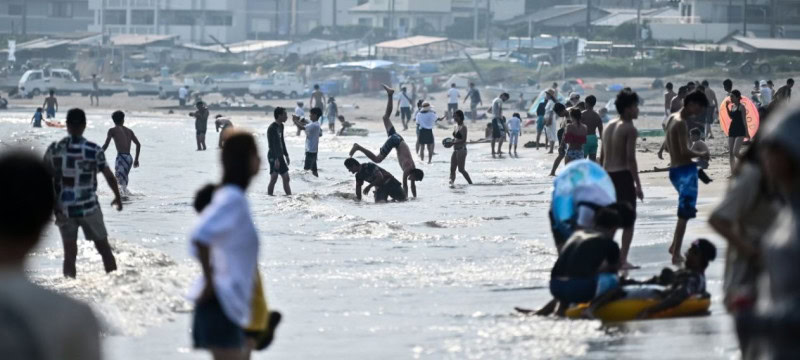According to the national meteorological service, Japan just saw the warmest spring on record. The average temperature for the months of March, April, and May was 1.59 degrees Celsius (34.9 Fahrenheit) higher than the long-term normal, according to the Japan Meteorological Agency. Since the government agency started compiling similar statistics in 1898, this unprecedented heatwave has marked the hottest spring.
The El Nino phenomena and the combined impacts of greenhouse gases, which have been pushing temperatures to record heights globally, were cited by the EPA as the causes of this exceptional warmth. As a result of continuous global warming, record-breaking temperatures are occurring more frequently and are expected to do so in the future.
The agency also noted that average sea-surface temperatures in the vicinity of Japan during the same months were among the third-highest recorded since 1982, demonstrating the wide-ranging effects of the warming trend.
According to a new UN research, there is a good chance that the five years between 2023 and 2027 will be the warmest ever seen. The chance that an El Nino weather pattern would form in the upcoming months, further escalating global temperatures, has an impact on this projection.
The World Meteorological Organization (WMO), an arm of the UN, has issued a warning, stating that there is a two-thirds possibility that at least one of the upcoming five years would see temperatures rise above the loftier goal set forth in the Paris Agreement. With a preference for 1.5 degrees Celsius, this worldwide agreement, reached in 2015, sought to keep global warming to “well below” two degrees Celsius over pre-industrial levels.
ALSO READ: British Army Chief speaks with COAS Gen. Asim Munir
Climate experts have stressed how the influence of global warming is escalating unfavorable weather conditions, such excessive rain, in Japan and other places. An atmosphere that is warmer has the capacity to contain more water vapour, which increases precipitation and raises the danger of catastrophic weather phenomena like landslides and floods. Sadly, tragedies like the deadly Atami landslip in 2021, which killed 27 people, provide as sobering reminders of the increased vulnerability brought on by climate change.
Japan, which is the G7’s current president, has made a commitment to accelerating the phase-out of fossil fuels to lessen the effects of climate change.









